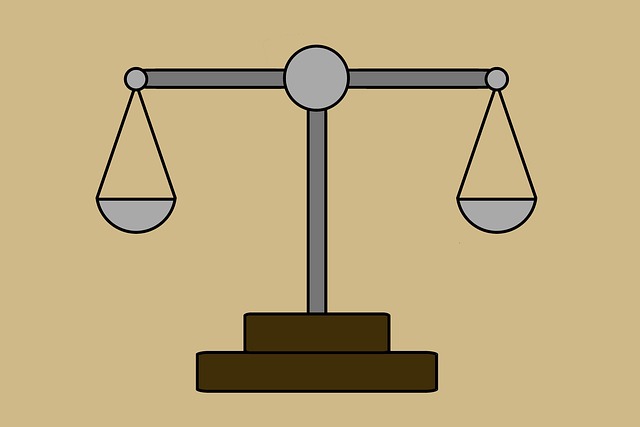Law offices require specialized computer and monitor setups to support their unique operational needs, demanding software like legal research databases and case management systems. The ideal equipment includes powerful processors, ample memory, swift storage, and ergonomic monitors to reduce eye strain during long work hours. Investing in high-quality law office equipment maximizes efficiency, focus, and productivity while fostering a healthier work environment. Top brands like Dell, HP, and Lenovo offer robust workstations with advanced security and customizable configurations tailored for legal needs. When selecting a monitor, prioritize resolution (4K or Full HD), refresh rate (75Hz or higher), and ergonomic design. Accessories like high-performance keyboards, external displays, and cloud-integrated printers further enhance productivity.
In the digital age, choosing the right computers and monitors is essential for legal practices to stay efficient and competitive. This comprehensive guide navigates the intricate landscape of law office equipment, focusing on core requirements, key features, top brands, monitor specifications, and essential peripherals. By understanding these aspects, attorneys can make informed decisions to create robust, ergonomic workstations that enhance productivity and support the demanding nature of legal work.
- Understanding Legal Practice Requirements for Computers and Monitors
- Essential Features to Look for in Law Office Equipment
- Top Computer Brands for Legal Practices: A Comparative Analysis
- Monitor Selection: Resolutions, Refresh Rates, and Ergonomics
- Additional Peripherals and Accessories for Efficient Legal Workstations
Understanding Legal Practice Requirements for Computers and Monitors
Legal practices have unique requirements when it comes to computer and monitor selection, as efficient case management and document review are paramount. Law offices need hardware that can handle demanding software applications, such as legal research databases and case management systems, ensuring smooth operation throughout the day. Additionally, monitors should offer crisp displays with adjustable settings for comfortable viewing, reducing eye strain during extended work hours.
The right equipment, including computers and monitors, can significantly enhance productivity and accuracy in a law office. Choosing devices with robust processors, ample memory, and fast storage options enables lawyers and their teams to multitask effectively, access case files swiftly, and analyze documents efficiently. Furthermore, considering ergonomic features in monitors can contribute to a healthier work environment, preventing fatigue and promoting focus on intricate legal tasks.
Essential Features to Look for in Law Office Equipment
When selecting law office equipment, such as computers and monitors, it’s crucial to consider specific features tailored to legal practices’ unique demands. Look for machines with robust processing power and memory to handle demanding software like case management systems and complex document editing tools. High-resolution displays are also essential; they ensure sharp text rendering and easy readability of fine details in legal documents and evidence.
Additionally, reliability and security are paramount. Opt for devices with proven longevity, as legal practices often rely on consistent performance throughout lengthy workdays. Built-in security features, like encryption and secure boot capabilities, protect sensitive client data from unauthorized access. Consider displays with adjustable stands to accommodate various workflow needs, ensuring comfort during extended use.
Top Computer Brands for Legal Practices: A Comparative Analysis
When equipping a law office, selecting top-tier computer brands is paramount for ensuring reliable, efficient, and secure operations. Legal practices require robust hardware capable of handling demanding software like case management systems, document editing tools, and e-discovery platforms. Brands such as Dell, HP, and Lenovo consistently stand out for their commitment to building powerful, durable machines designed to meet the rigorous demands of legal professionals.
Dell, a long-standing favorite among law offices, offers a comprehensive portfolio of workstations tailored for legal needs. Their precision-engineered systems boast exceptional performance, advanced security features, and customizable configurations. HP, similarly, provides innovative solutions with powerful processors, ample memory, and vibrant displays ideal for detailed document review and analysis. Lenovo, known for its ThinkStation series, delivers excellent build quality, industry-leading warranties, and versatile options catering to a range of legal office equipment requirements.
Monitor Selection: Resolutions, Refresh Rates, and Ergonomics
When selecting a monitor for your legal practice, pay close attention to its resolution, refresh rate, and ergonomic design. Higher resolutions like 4K (3840×2160) or Full HD (1920×1080) ensure crisp text and clear images, which is particularly beneficial when reviewing documents and evidence. Refresh rates of 75Hz or higher minimize blurring and stuttering, making it easier to track fast-moving content during presentations or video conferences.
Ergonomics are also crucial for maintaining focus and preventing strain. Look for monitors with adjustable stands that allow for height, tilt, swivel, and pivot adjustments. This flexibility ensures you can maintain a comfortable viewing angle throughout the day, reducing eye fatigue and promoting better posture. Additionally, consider monitors with built-in anti-glare coatings to minimize reflection and glare, which can be distracting when working on sensitive legal matters.
Additional Peripherals and Accessories for Efficient Legal Workstations
In addition to computers and monitors, there are several peripherals and accessories that can significantly enhance productivity in a law office. High-quality keyboards with ergonomic designs can reduce fatigue during long hours of document drafting and case research. Advanced mice or trackpads that offer precise control and customization can improve efficiency when navigating complex legal software and databases.
For enhanced visual presentation, an external display or multiple monitors can be a game-changer. This setup allows for side-by-side comparison of documents, case law, and evidence, streamlining tasks like research and review. Further, investment in reliable printers, scanners, and copiers integrated with cloud services ensures seamless document management and secure data handling, crucial aspects of legal practice. These additional components collectively contribute to creating an efficient, state-of-the-art law office equipment setup tailored for the unique demands of legal work.
When equipping a legal practice with computers and monitors, understanding specific requirements and selecting the right hardware is essential. By considering the unique demands of legal work, such as robust performance, data security, and efficient document management, you can create powerful workstations tailored to your firm’s needs. This comprehensive guide highlights key features, top brands, and essential peripherals, empowering legal professionals to make informed decisions when investing in law office equipment.
